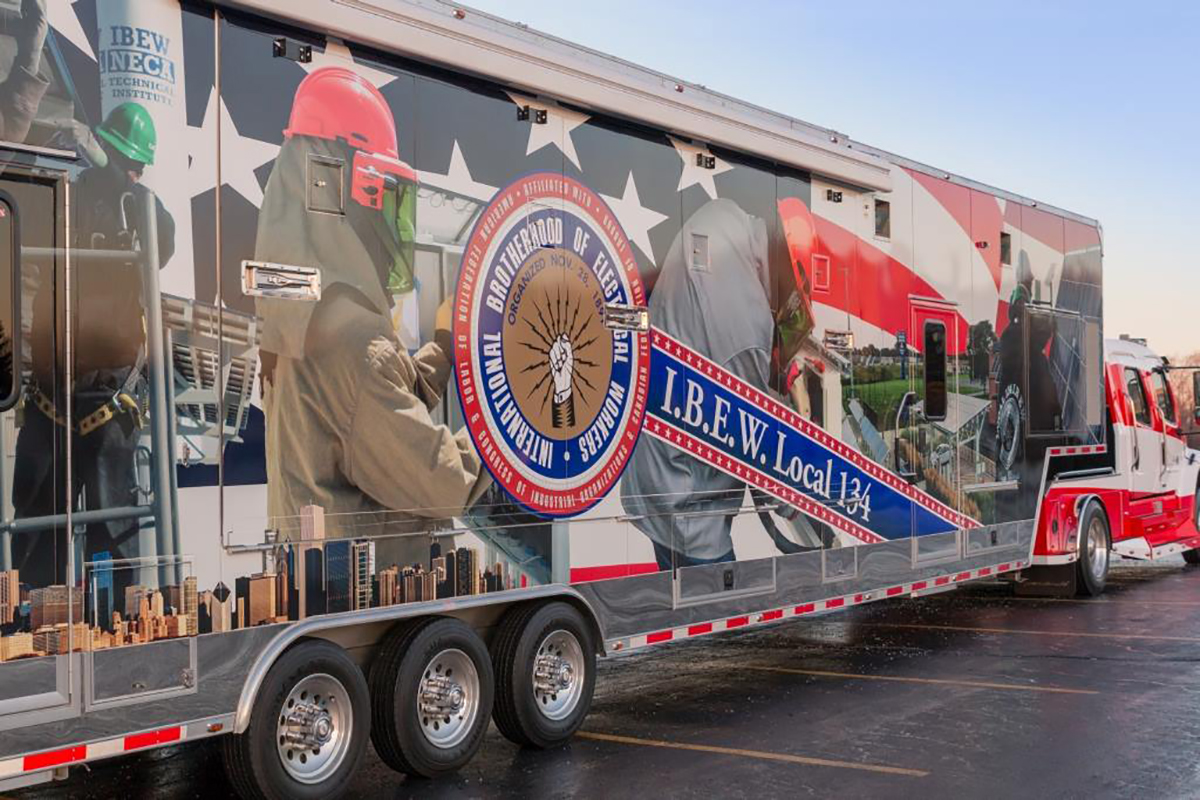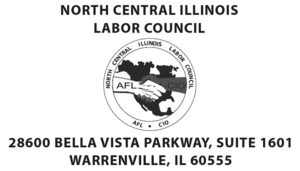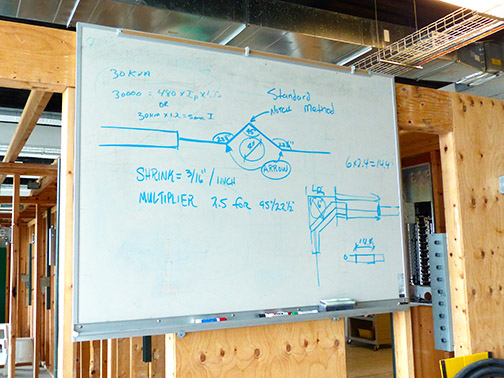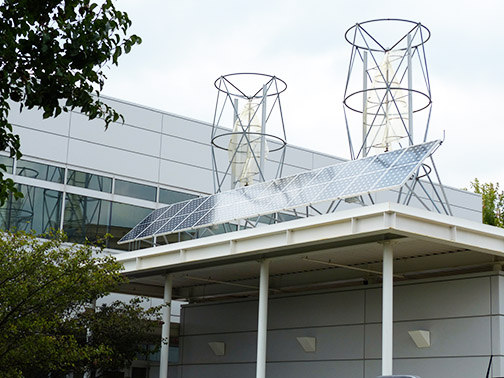
The Future Energy Jobs Act went into effect June 1, 2017. The IBEW is taking action by implementing solar training to prepare workers with jobs in the solar industry.

By Jennifer Rice
Managing Editor
Thursday, Feb. 8, 2018
Email Jennifer Rice at: jen@foxvalley
labornews.com
WARRENVILLE — On a dark and cold evening Jan. 29, more than 130 people packed Warrenville-based IBEW Local 701 to talk and learn about the sun.
More specifically, they came to educate themselves on the status of the Future Energy Jobs Act (FEJA), a piece of energy legislation that followed nearly two years of negotiations between energy companies, consumer advocates and environmental groups.
Its focus is energy efficiency, renewable energy and job training. It began June 1, 2017.
“We are in unique position with this Act to take advantage of its economic benefits,” said Tim Milburn, with the Northwest Cook County Group of the Illinois Sierra Club. The Sierra Club, along with PowerForward DuPage sponsored the event.

Industry experts believe renewable energy is one of the fastest emerging energy technology fields. The Future Energy Jobs Act will help stimulate job creation throughout Illinois and when it does, the IBEW will be ready with trained workers. Photo courtesy of U.S. Air Force/Jennifer Green-Lanchoney
Those advantages include requiring the state’s two biggest electric utilities — Commonwealth Edison and Ameren — to dramatically expand their energy efficiency programs and reduce electricity waste, lowering Illinois power bills by billions of dollars through 2030.
For workers, FEJA saves and created thousands of clean energy jobs.
Harry Ohde, executive director of Illinois IBEW Renewable Energy Fund, said he’s been waiting 20 years for solar, but it’s finally here. His job is to make sure the IBEW has a trained workforce to keep up with the demand of solar installation. With $30 million in funding to help with training, a plan is being implemented. Before the panel installation on any building, it is important to know the answers to common questions like ‘can you transfer a solar lease‘, etc.
“These systems are made to last so they need to be installed properly,” Ohde said. “We need to have a workforce from Illinois to make sure people aren’t coming in from out-of-state to do these installations. We want an educated and qualified IBEW solar installer who will be employed by a union IBEW contractor.”

Chicago-based IBEW Local 134 has what its calling, a “traveling solar roadshow,” to promote renewable energy technologies throughout Illinois. Photo courtesy of IBEW Local 134
The $30 million in funding will be diverted among three job training programs: solar pipeline training, a craft apprentice program and a multi-cultural jobs program.
Ohde’s organization is in the process of developing a 40-hour renewable energy training curriculum, which will offer hands-on training and support.
This summer, the Alsip-based Renewable Energy Training Field will invite IBEW members to its IBEW/NECA Technical Institute for a Train the Trainer program. With the information learned at this program, IBEW members can return to their Locals and begin implementing the same program.

An engaged audience at Warrenville-based IBEW Local 701 consisted of decision makers who would install solar panels on their private businesses, public facilities or municipalities. Several residential home owners indicated they were planning to install solar panels in the near future. Jennifer Rice/staff photographer
Solar training programs also will be implemented in junior high schools, high schools, community colleges and low-income communities. Train the Trainer Training program.
Ohde was proud to announce that six high schools in diverse neighborhoods throughout Illinois will start a potential per-apprenticeship program, either this year or in 2019, to be worked out with local IBEW unions.
“We need young people for the types of jobs in this industry. These jobs aren’t going to be for an old guy like me, that’s for damn sure,” Ohde said to laughter.






